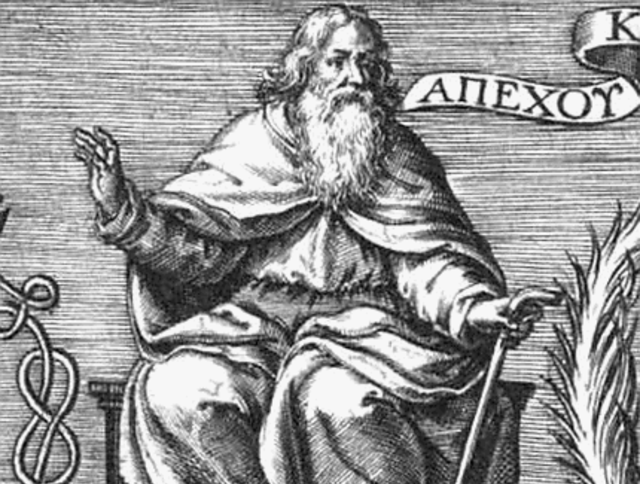Epictetus, one of the most influential Stoic philosophers, was born around 50 CE in Hierapolis, a city in the Roman province of Phrygia, in what is now modern-day Turkey. His early life was marked by hardship, as he was born into slavery. Despite these humble beginnings, Epictetus’s teachings would go on to shape the thoughts and lives of countless individuals throughout history. His journey from slavery to becoming one of the most respected philosophers of his time is a testament to the power of the Stoic principles he later espoused.
As a young man, Epictetus was brought to Rome, where he served as a slave to Epaphroditus, a wealthy freedman who worked in the court of Emperor Nero. It was during this time that Epictetus was introduced to philosophy, specifically the teachings of Stoicism, which emphasized virtue, rationality, and the importance of understanding what is within our control and what is not. Epaphroditus allowed Epictetus to study under Musonius Rufus, a prominent Stoic philosopher, who became his mentor and deeply influenced his thinking.
Epictetus’s philosophy is fundamentally rooted in the idea that true freedom comes from within, not from external circumstances. His belief that we cannot control external events, but only our responses to them, is a central tenet of Stoicism. This perspective was likely shaped by his experiences as a slave, where he learned that while his physical circumstances were beyond his control, his mind and his attitude were his own. This inner freedom, Epictetus taught, is the key to living a virtuous and fulfilling life.
After gaining his freedom, Epictetus established a school of philosophy in Nicopolis, in northwestern Greece. There, he taught a practical form of Stoicism that focused on ethics and personal conduct. His teachings were not theoretical abstractions but rather practical advice on how to live a good life. Epictetus believed that philosophy should be a way of life, not just an intellectual exercise. He encouraged his students to apply Stoic principles to their daily lives, emphasizing the importance of self-discipline, resilience, and the pursuit of virtue.
One of Epictetus’s most famous ideas is the dichotomy of control, which divides the world into things we can control and things we cannot. He argued that we should focus our energy on the former—our thoughts, actions, and attitudes—while accepting the latter—external events, other people’s actions, and the natural course of life—as beyond our influence. This teaching is encapsulated in his assertion that “It’s not what happens to you, but how you react to it that matters.” This simple yet profound idea has resonated with people throughout the centuries, offering a way to navigate the challenges and uncertainties of life with grace and equanimity.
Epictetus also emphasized the importance of living in accordance with nature, which, in Stoic philosophy, means living in harmony with the rational order of the universe and recognizing our place within it. He believed that by understanding our role in the larger scheme of things, we could align our actions with nature’s rational order and live more fulfilling lives. This idea ties into the Stoic concept of fate, where acceptance of life’s events, whether good or bad, is essential to maintaining inner peace.
Despite his teachings being rooted in Stoic philosophy, Epictetus’s approach was notably pragmatic. He focused on what was useful for his students in their everyday lives, rather than engaging in abstract philosophical debates. His teachings were recorded by his pupil Arrian in the form of the Discourses and the Enchiridion, or Handbook, which have survived through the centuries and continue to be studied and admired for their practical wisdom.
The Enchiridion is a concise manual of Stoic ethics, offering guidance on how to live according to Stoic principles. It distills the essence of Epictetus’s teachings into practical advice, such as the importance of distinguishing between what we can and cannot control, the value of accepting life’s challenges with a calm mind, and the need to practice moderation and self-restraint.
Epictetus’s influence extends far beyond his own time. His ideas have been embraced by a wide range of thinkers, from early Christian theologians like Augustine to modern philosophers and psychologists. The Stoic emphasis on personal responsibility, the importance of maintaining perspective, and the cultivation of inner peace have made Epictetus’s teachings particularly relevant in today’s fast-paced, often chaotic world.
In the end, Epictetus’s life and teachings offer a powerful example of how philosophy can serve as a guide to living a good and meaningful life. His emphasis on the inner life, the control we have over our own thoughts and actions, and the acceptance of life’s inevitable hardships resonates across the ages. Epictetus’s philosophy, born out of the hardships of slavery and the pursuit of wisdom, continues to provide valuable insights into how we can navigate the complexities of life with integrity, courage, and grace.
4o

